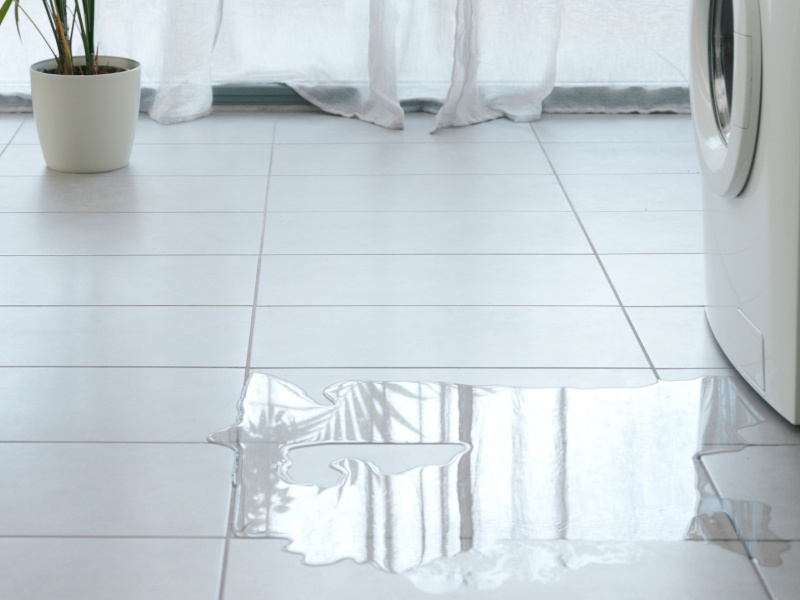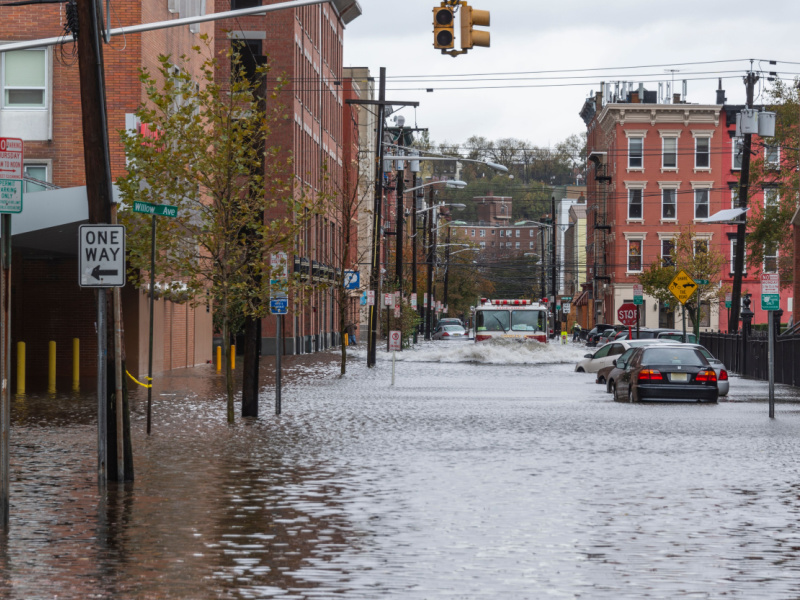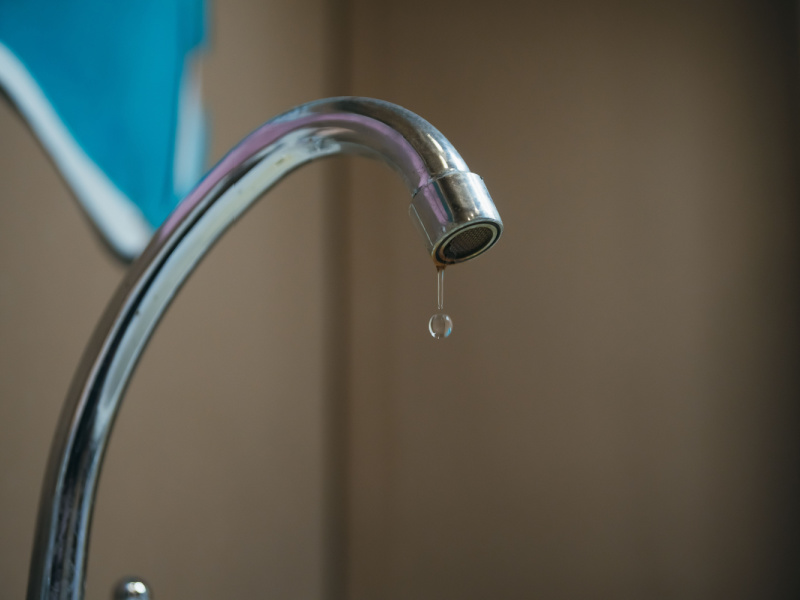Let’s start with some good news—for a lot of water-related damages, such as burst pipes or leaking appliances, you’ll be covered by your renters insurance policy.
Your insurance might additionally step in if your apartment becomes temporarily uninhabitable, or if water from your home damages surrounding apartments.
However, some common scenarios, such as flooding and water damage due to negligence, are generally excluded from your insurance coverage.
- Renters insurance generally covers water damage caused by accidental events such as burst pipes or leaking appliances, like an overflowing bath or toilet.
- Your policy may also cover damage to neighboring apartments if the leak originates in your unit.
- Renters insurance generally does not cover water damage caused by outside flooding (which often requires its own policy through a separate insurance company).
- If your apartment becomes temporarily uninhabitable due to a covered peril, your policy may cover additional living expenses such as temporary housing and meals.
For more answers, including where your responsibility ends and your landlord’s responsibility begins, let’s take a deep dive into how your renters insurance relates to water damage.
When does renters insurance cover water damage?
Generally, water damage is one of the main covered perils—something that causes damage or loss that would be covered by your renters policy.
However, this is only true if the water damage happened due to a sudden and accidental event, and isn’t the result of general wear and tear or negligence.
Some examples of covered cases:
A pipe bursts or one of your appliances leaks

If a nasty leak from your washing machine ruins your couch, guitar, and vintage record player, this damage falls under the personal property section of your renters policy. In such a scenario, your things would generally be covered up to your policy’s coverage limit (minus your deductible, that is).
For high-value items like jewelry, cameras, expensive bikes, or fine art, you might need to get Extra Coverage so that you’d be compensated for the full value of your property.
Your personal property coverage, as its name implies, applies to your own personal belongings exclusively. Damage to the structure of the building, or any furniture that is owned by your landlord, won’t be covered under your renters policy (but should be covered under your landlord’s insurance instead).
This also means that mold in your apartment’s walls wouldn’t be covered by your renters insurance—but mold that damages your personal property, and is caused by a peril like a burst pipe, might be covered.
Your water damage spreads to an adjacent apartment
As depressing as it is that your own things got soaked, it could be worse. The leak could also spread to your neighbors. The good news is that your renters insurance’s personal liability portion will likely cover their damage as well, if you were the one who caused the leak. So you won’t have to argue with your neighbors about who’ll pay for their ruined stuff.
Notice we said “if you caused the leak.” If the water damage in your apartment came from something like a water line maintained by the building—causing a leak into your unit and then into others—it’s unlikely that you’d be responsible for the damages to your neighbor’s stuff.
Your home becomes temporarily uninhabitable as a result of water damage
An unsafe building, spreading wet patches, or furniture that’s so damaged it can’t be used—there are many water-related reasons that might force you out of your home. If that’s the case, most standard renters policies will reimburse you to help cover additional living expenses, such as temporary housing and meals. They may even assist you in finding a new permanent residence. This is all part of your policy’s loss of use coverage.
When water damage is not covered
Your renters insurance policy doesn’t cover water damage in the following scenarios:
Flooding

Renters and homeowners insurance policies generally don’t cover flooding from the outside. Instead, flood insurance is sold as a standalone policy.
If you’re a renter living in a flood-prone area, it may be worth looking into taking out a flood insurance policy to protect your personal property from any potential damage.
Sump pump and sewer backups
Hope you’ve eaten breakfast before this mental image: If any water flows back into your house from your sewers, drains, or drainage system, such as a sump pump, the damage won’t be covered by your basic policy. However, we can add endorsements to your policy that would cover these scenarios—just ask.
Poor maintenance or negligence
If all the signs were there— for instance, the constant drip, drip, drip of a leaky pipe—and no one did anything to prevent the water from spreading, your insurance company might not cover the damage. It depends on the specific circumstances. (For instance, did you spot a leak and avoid flagging it to your landlord? Did you report a leak and your landlord didn’t do anything to fix it?) Read more about your rights as a renter here.
Does renters insurance cover ceiling leaks?
Generally, the answer is yes. Your renters policy covers leaky ceilings and subsequent damage to your stuff. Damage to the roof itself falls under your landlord’s responsibility (or in that case, their insurance)—your renters coverage is limited to your belongings.
However, you’re only covered in the case of a sudden, unexpected damage. So if it rains into your house because a windstorm, hail, ice ,or sleet created a hole in one of the walls or the roof of the building, your insurance would likely cover the damage to your belongings.
But if you’ve forgotten to close your windows and your things got destroyed by rain, this wouldn’t be covered (since you’re negligent in this scenario). There might also be issues with coverage if your leak itself is very old and hasn’t been properly maintained by your landlord.
Does renters insurance cover toilet overflow?
The short answer is: Yes. Damage from overflowing toilets (eek) or leaking bathtubs are generally covered under your renters policy.
Just remember to be diligent about not flushing things down the toilet that don’t belong there or leaving your tub running too long. Even if renters insurance can help, dealing with these scenarios can cause a real headache.
Does renters insurance cover water damage from a broken pipe?
Yes! Picture this: One of your pipes bursts, floods your apartment, and destroys most of your stuff in one go. Extremely unfortunate, but luckily covered by your renters policy.
If, alternatively, your pipe broke due to an existing maintenance issue—which your landlord was aware of, but chose to ignore—they’d be the one liable.
How to avoid water damage

There’s no full-proof way to avoid water damage. But there are definitely a few hacks that can decrease the risk (and keep your renters insurance costs down). Let’s take a look:
- Constantly check your apartment for damages, cracks, leaky windows, and damp spots—especially after periods of rain. Even tiny damages can over time exacerbate and mutate into something really awful (hello there, moldy bedroom wall!)
- In case you find anything concerning, immediately flag it to your landlord. If he doesn’t react, feel free to remind them.
- Get some help by installing a water detection system, for around $50 a piece—or alternatively, by having your landlord install it. The device needs to be set up close to an area prone to water damage, such as your washing machine or the basement. Once in place, it will constantly monitor the surroundings to help detect water leaks as early on as possible. If worse comes to worst, and access water is detected, the device will send you a notification.
Preventing water damage is part of being a good, responsible renter—as is getting renters insurance, which you can get from Lemonade, with prices starting as low as $5/month.
FAQs
Does renters insurance cover frozen pipe damage?
Yes. Renters insurance can help cover the costs to repair or replace your belongings and the cleanup if your pipes turn into icy popsicles and cause a mess in your apartment when they burst.
Does renters insurance cover flooding?
Standard renters insurance does not cover flooding from natural disasters. If you’re concerned about flooding, consider purchasing a standalone flood insurance policy to ensure your belongings are protected.
How quickly should I file a claim after discovering water damage in my rented apartment?
As soon as you discover any signs of water damage—whether it’s from a leaking appliance, or a burst pipe— it’s recommended to file your claim promptly. The sooner you do, the faster you can get back to your cozy, dry space.
A few quick words, because we <3 our lawyers: This post is general in nature, and any statement in it doesn’t alter the terms, conditions, exclusions, or limitations of policies issued by Lemonade, which differ according to your state of residence. You’re encouraged to discuss your specific circumstances with your own professional advisors. The purpose of this post is merely to provide you with info and insights you can use to make such discussions more productive! Naturally, all comments by, or references to, third parties represent their own views, and Lemonade assumes no responsibility for them. Coverage and discounts may not be available in all states.




